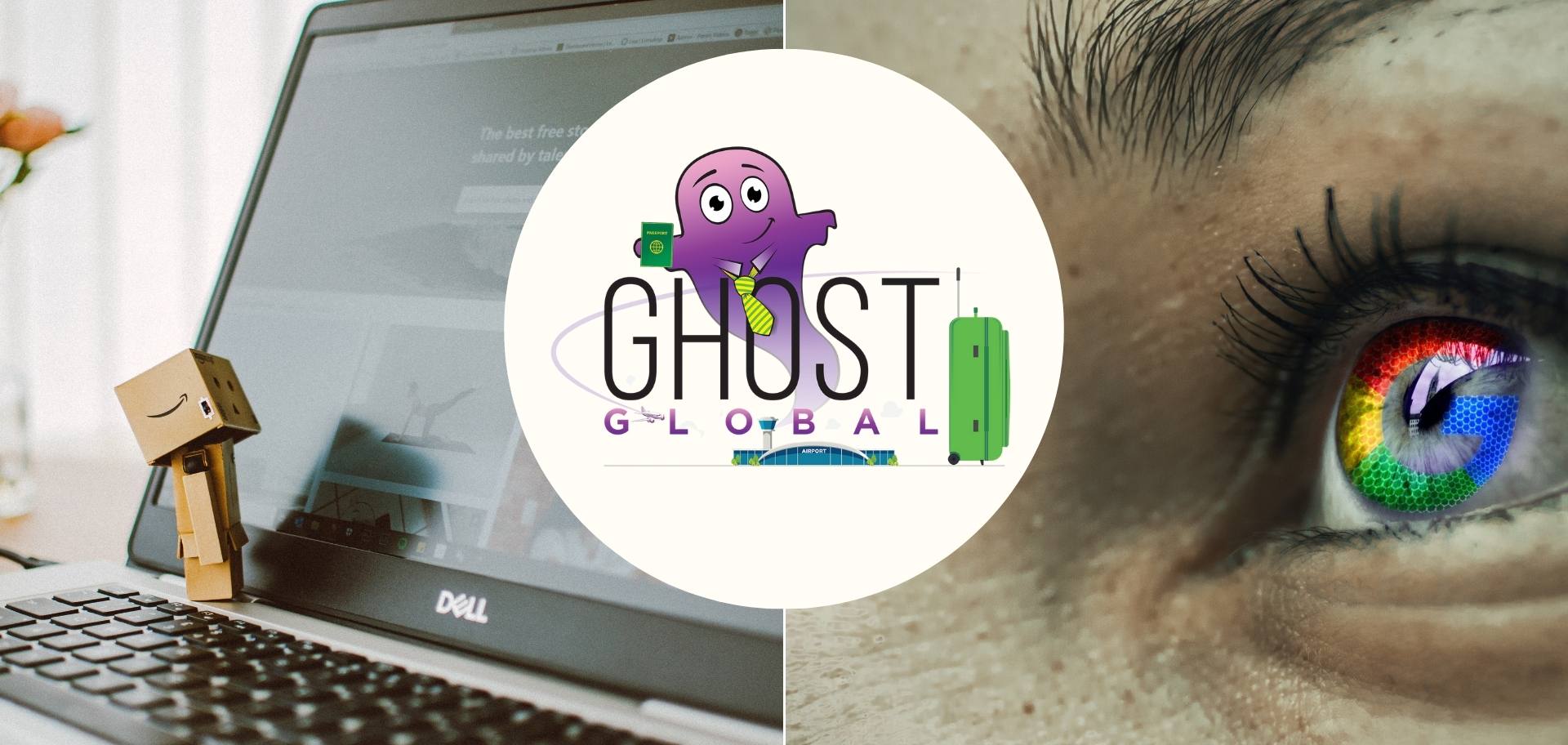In a tech-themed Ghost Global this week, we bring you fresh updates on Amazon, Meta and Alphabet.
No need to book a game drive – all you have to do is watch the markets to see three of the Big Five American information technology companies making moves this week. Alphabet, Amazon and Meta all announced earnings, and each had something different to say about the future of the never-dull tech industry.
For research on global stocks that will help you trade and invest with confidence, subscribe to Magic Markets Premium for R990/year or R99/month.
Alphabet sticks to a slow and steady strategy
Google’s parent company, Alphabet Inc., released its financial results for the third quarter ended September on Thursday. They reveal that total revenue rose by only 6% year-over-year to $69 billion, which is a little meh compared with the 41% increase in the third quarter of 2021. Still, growth is growth, however aggravatingly slow.
Your favourite ghost is rather bearish on Alphabet, as the way people are searching is changing. With an ever-increasing number of platforms and apps that can do everything, the need to “Google” it could diminish over time. On the plus side, absolutely nobody chooses to “Bing” it unless they open Microsoft Edge because they weren’t concentrating properly.
Within Search, Google is the ultimate. The question mark is over Search as a business over the next decade. This quarter makes that view look a little silly though, with Search advertising revenue significantly higher year-on-year. The same can’t be said for YouTube Ads, with even the best social media and content platforms coming under pressure as people get tired of yet another Monday.com ad.
This makes the Search result even more impressive in the global context. Still, the longer-term worries remain.
A deeper dive into Alphabet’s financials for Q3 reveal that its Cloud segment is the fastest-growing business by revenue, yet losses just keep mounting. With its revenue up by 37,6% year-on-year to $6.9 billion, it just goes to show that there’s a bright side to every pandemic (in this case, the fact that millions of companies were practically forced to adopt cloud tech overnight). The problem is that providing this service is costly and Google Cloud is still sub-scale, so losses increased from $644 million to $699 million.
With such little growth, operating margin fell from 32% to 25%. Ouch.
In an attempt at growth beyond its core business, Alphabet welcomed a new family member to the table with the acquisition of cyber-security company Mandiant for a total purchase price of $6.1 billion. This move sees the tech pioneer adding over 2 600 employees to its workforce. Clearly someone’s feeling optimistic about the future, global recession be damned.
Amazon struggles to see the forest for the trees
Diehard Tolkien fans aren’t the only ones upset by Amazon’s new Rings of Power series – the shareholders who helped pay for it are grumbling too. It turns out big budgets (in this case, a whopping $500 million) don’t impress fans as much as the little things, like actually reading the books and sticking to well-established lore. From a shareholder perspective, it must be more than a little annoying to see such large amounts of money squandered on a sub-par spinoff that no-one asked for in the first place.
To add insult to injury, Amazon’s free cash flow decreased significantly, from an inflow of $2.6 billion for the trailing 12 months ended September 2021 to an outflow of $19.7 billion for the trailing 12 months ended September 2022. This is a cause for concern in an inflationary environment, as money is no longer “free” and the market is placing far more scrutiny on return on investment. Although Amazon is profitable (in this quarter at least), the company is investing more than its cash profits in infrastructure (and possibly the desecration of the works of more genre-defining authors).
Following this downward trend, net income decreased to $2.9 billion for Q3, compared to $3.2 billion in Q3 2021. Net income is being impacted by substantial swings in the value of the investment in Rivian, causing wild quarter-on-quarter moves as the volatile market treats Amazon’s income statement with even less respect than Tolkien’s story received. In the third quarter, the Rivian investment was responsible for a $1.1 billion valuation gain.
For the nine months ended September 2022, the group is sitting on a loss of $3 billion. With Halloween in the bag and the rest of the holiday season looming, Amazon may be banking on a Christmas miracle to turn a slow start to the year around and enable it to report a profit when the annual financials come out.
The truth of it is that the Rivian share price will play a substantial role in where net profit for the year ends up. This is what happens when listed companies make risky bets.
The other major driver of reported earnings is the strength of the dollar. To show how severe the impact is, net sales in Q3 were up 15% as reported and 19% on a constant currency basis. US tech giants are all being hurt by the currency.
Meta-morphosis: Zuckerberg says “Don’t worry, I have a plan.”
For those who want a detailed report on Meta’s latest earnings and what it means for the investment thesis, The Finance Ghost and Mohammed Nalla covered the stock in Magic Markets Premium this week.

Moving on to a summarised view of the third-quarter results, we have to dig deep to find anything to like about these numbers.
It’s certainly impressive that Facebook’s daily users rose by 3% (you read that right – more people are joining or at least using Facebook) to reach a total of 1.98 billion worldwide. Speaking of impressions: ad impressions across the company’s Family of Apps, which includes Facebook, Messenger, Instagram and WhatsApp, increased by 17%, while the average price per ad decreased by 18%. This represents a significant increase in demand for advertising on the platform, which is likely due to the continued growth of the user base. In addition to heightened price sensitivity among advertisers, the decrease in price per ad also confirms that Reels is proving to be dilutive to revenue.
In fact, Meta reckons it will take over 18 months for Reels to be accretive to revenue. Switching people away from Feed and Stories into short-form videos is necessary to fight TikTok, but it is hurting the business.
Revenue fell by 4% to $27.7 billion in the most recent quarter, but the company claims that this figure would have been $1.8 billion higher if foreign exchange rates had remained constant. We’ll take their word for it, noting that revenue is 2% higher on a constant currency basis.
Most investors have lost faith (and money) in the company formerly known as Facebook – or perhaps they’ve lost faith in its leader and his hell-bent metaverse crusade. At a time when the core business is under macroeconomic pressure and facing considerable internal change (the impact of Reels), Zuck is going full throttle on his investment in the Metaverse and capex in general.
At some point, you have to wonder if poor Mark is in on the joke or if we should tell him that very few investors really care about the metaverse. Either way, investors are running out of patience and terrified of the free cash flow trajectory, sending the share price down 25% (again) after this earnings release.
The share price has lost over 72% of its value this year. There’s nothing to like about that.



